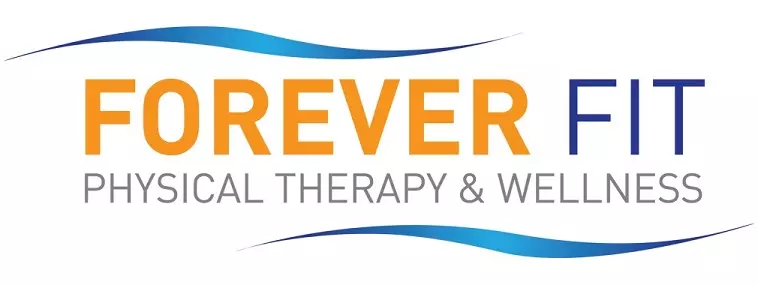Your spine is made up of 33 individual vertebrae that interlock to form a canal to protect your spinal cord. Your spinal cord is the system of nerves your body uses to send messages to and from your brain and muscles and vice versa. The seven bones of your spine that make up your neck are called the cervical vertebrae.
Nearly 2 out of every 1,000 people are diagnosed with a pinched nerve in their neck, also known as a cervical radiculopathy, a year in the United States. It is possible that the headache you are experiencing is caused by a pinched nerve in your neck. Your neck and head are closely connected through a network of muscles, nerves, and bones. It shouldn’t come as a surprise that a pain in your neck could be the culprit behind your headaches.
What causes a pinched nerve in the neck?
A pinched nerve can happen in many different parts of the body. A pinched nerve occurs when surrounding tissue or bone puts too much pressure on the nerve. The resulting pressure can cause pain, weakness, numbness or tingling.
Common causes of a pinched nerve in your neck can be due to:
- Spinal conditions — Conditions affecting your spinal growth or development like scoliosis can lead to pinched nerves.
- Spinal injuries — If you sustain an injury to one of your spinal discs or vertebrae, it could result in a pinched nerve.
- Herniated disc — When the outer part of a spinal disc is damaged, causing some of the material to leak out, it is called a herniated disc. The pressure of this material can cause a pinched nerve.
Most people recover from a pinched nerve with rest and other treatment methods, including physical therapy, in a matter of a few days to weeks.
It’s not a migraine
Headaches caused by a pinched nerve in the neck can mimic the symptoms of a migraine, but the source of the pain is not the same. Some headaches can be triggered by eyestrain, tiredness and other factors. When the nerves in the neck are the culprit behind your headache, it’s known as a cervicogenic headache.
A cervicogenic headache can be caused by an injury such as whiplash, arthritis, or even your posture. A cervicogenic headache is different from other types of headaches. It’s likely you will experience neck stiffness and pain on one side of your head, starting at the base of your skull.
It is also possible you could experience a more rare type of headache caused by a pinched nerve. A sharp, stabbing pain behind one eye could be due to a condition called occipital neuralgia. It is also often mistaken as a migraine.
Symptoms of a headache caused by a pinched nerve that are similar to a migraine include: light sensitivity, noise sensitivity, blurry vision and nausea. If you’re uncertain if your headache is caused by a pinched nerve or is a migraine, a medical professional may be able to tell you by simply examining your neck. If a physical exam cannot determine the cause, you may need an X-ray or a CT scan. Your doctor may refer you to a physical therapist to help you with your pinched nerve headache.
6 ways to help your pinched nerve headache
You may be able to find relief from a headache caused by a pinched nerve in your neck without seeking major medical intervention. Such treatments that can help you find relief may include:
- Medication — If your pinched nerve is due to inflammation, over-the-counter nonsteroidal anti-inflammatory drugs can help with your pain. Your doctor may also prescribe a muscle relaxer to help ease any tightness or muscle spasms you may be experiencing in your neck that are causing your pinched nerve.
- Heat and cold therapy — Applying a heating pad or warm towel on your neck can help boost muscle relaxation and help ease the pressure on your pinched nerve. Applying an ice pack or bag of frozen vegetables wrapped in a cloth on your neck or head can help decrease the intensity of the pain. It is important not to place the cold therapy directly on your skin.
- Time and rest — While it may feel impossible to rest and relax with a headache due to a pinched nerve, getting rest is beneficial to healing. Avoiding strenuous activity may help prevent exacerbating your pinched nerve. Proper sleep is vital to good health.
- Improving your posture — Slouching while you mindlessly scroll through social media on your phone can be behind the pain in your neck. Having poor posture places added stress on your body. Being mindful of how you sit, stand and move can help prevent conditions leading to pinched nerves.
- Stress management — Stress can lead to muscle tension and pinched nerves. Taking time for yourself and to decompress is important for your well-being.
- Physical therapy — A physical therapist can use manual techniques and individualized exercise prescription to help reduce muscle stiffness in your neck. This can lead to improved blood flow and releasing pressure on your nerves.
Forever Fit Physical Therapy & Wellness can help treat your pinched nerve in your neck
At Forever Fit Physical Therapy & Wellness, our licensed physical therapists are highly trained to care for our patients. Our goal is to have you on your way to recovery as soon as possible. Our team will provide compassionate, individualized treatment for your headaches due to a pinched nerve in the neck.
Contact our team today for more information or to schedule an initial appointment.

